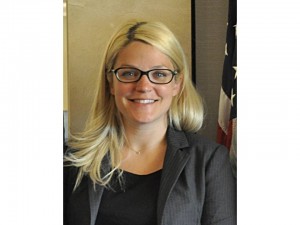At 2 PM today, U.S. District Court Judge Nancy Torresen will hear oral arguments regarding the Thomas More Law Center’s (TMLC) motion for preliminary injunction of Portland, Maine’s 39-foot abortion clinic “buffer-zone” city ordinance. The arguments will take place despite the fact that the Supreme Court has not yet released its awaited decision in the Massachusetts case of McCullen v Coakley, which legal pundits claim will impact the jurisprudence of buffer zones around abortion facilities.
If granted, the preliminary injunction would halt enforcement of Portland’s city ordinance 17-108 and allow pro-life sidewalk counselors to resume counseling and outreach activities during court proceedings on the sidewalks outside of Portland’s only abortion clinic, Portland Health Center, which is operated by Planned Parenthood of Northern New England.
The motion for preliminary injunction was filed in March 2014 by the Thomas More Law Center, (TMLC) a national public interest law firm based in Ann Arbor, MI on behalf of sidewalk counselors Leslie Sneddon and Marguerite Fitzgerald and her family.
Portland’s city ordinance 17-108 establishes a 39-foot “buffer zone” around the city’s sole abortion facility. Pro-life sidewalk counselors and demonstrators are subject to a $100 fine if they enter the 39-foot radius around the facility’s entrances, which includes large stretches of public sidewalk. Consequently, the ordinance creates a free speech dead zone which effectively prevents pro-life counselors from reaching out to women who are contemplating an abortion.
TMLC Senior Trial Counsel, Erin Mersino, commented, “The ordinance does not accomplish anything other than making the public sidewalk open to one class of people, while excluding another based upon the point of view of one’s speech- if you’re trying to counsel a patient of Planned Parenthood, then you are no longer welcome on the public sidewalk and you are subject to fines. That concept is un-American. All Americans regardless of viewpoint should be able to voice their views on the public sidewalk and in the public square. Taxpayers paid for that sidewalk for public use. It is not the private property of Planned Parenthood, nor should it be treated that way.”
The Supreme Court’s decision in McCullen v. Coakley is expected within the next two weeks. That case involves a 2007 Massachusetts state law which creates a 35-foot no-entry zone for pro-life sidewalk counselors. During oral arguments before the Supreme Court, a majority of the nine justices expressed concern that such buffer zone laws may be too broad. Justice Elena Kagan’s questions seemingly indicated that the size of the buffer zone was simply too large. Similarly, Justice Stephen Breyer expressed concerns over whether the law sought to distinguish between those who sought to conduct “calm conversation,” like Sneddon and the Fitzgeralds and those who are disruptive.
Many analysts have speculated about the ramifications the decision in McCullen will have on the future of pro-life outreach and sidewalk counseling activities. Mersino offered her analysis on the ramifications of the pending Supreme Court decision stating, “The Supreme Court’s decision in McCullen v. Coakley will be instructive for the Maine case, however it may not be determinative. The prohibited speech zone in the Maine case is even larger and even more intrusive on our Constitutional freedoms than the zone the Supreme Court is currently examining.”
